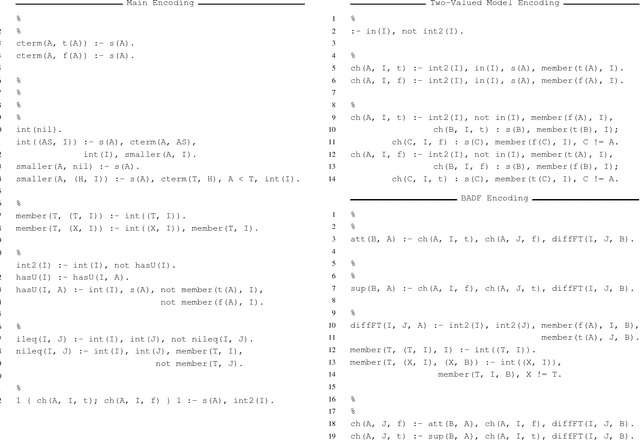Characterizing Realizability in Abstract Argumentation
Paper and Code
Mar 31, 2016
Realizability for knowledge representation formalisms studies the following question: given a semantics and a set of interpretations, is there a knowledge base whose semantics coincides exactly with the given interpretation set? We introduce a general framework for analyzing realizability in abstract dialectical frameworks (ADFs) and various of its subclasses. In particular, the framework applies to Dung argumentation frameworks, SETAFs by Nielsen and Parsons, and bipolar ADFs. We present a uniform characterization method for the admissible, complete, preferred and model/stable semantics. We employ this method to devise an algorithm that decides realizability for the mentioned formalisms and semantics; moreover the algorithm allows for constructing a desired knowledge base whenever one exists. The algorithm is built in a modular way and thus easily extensible to new formalisms and semantics. We have also implemented our approach in answer set programming, and used the implementation to obtain several novel results on the relative expressiveness of the abovementioned formalisms.
 Add to Chrome
Add to Chrome Add to Firefox
Add to Firefox Add to Edge
Add to Edge